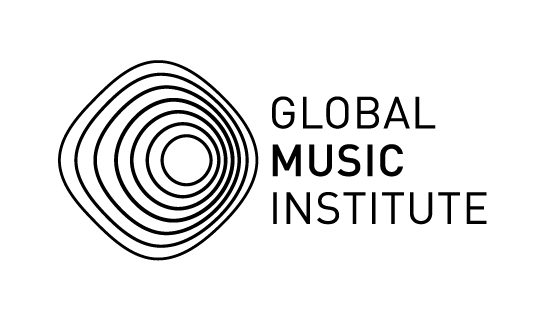
28 Jul In Conversation with- Avanti Patel
The ‘In Conversation with’ series brings to you the stories of various creative professionals from the music industry and provides a glimpse into their journeys. Today’s conversation with Avanti Patel explores her early beginnings in the industry from participating on two reality TV shows, showcasing her artistic identity in her capacity as an independent musician and much more.
Articulate, expressive, poised, talking to Avanti Patel is like catching up with an old friend. A versatile performer, composer, student of Vidushi Ashwini Bhide Deshpande, and playback singer, Avanti’s aptitude for music was spotted early on by her mother. “My mother pushed me to start learning music from Varsha Bhave ji. I really feel grateful for the way she introduced me to music. The first five years were all about songs, introduction to notes and before I knew it I could do notations like it was a language. I got a lot of exposure to theatre and dance through stage performance in those five years because she pushed us to perform. Because this happened at such a young age I don’t think I realised how so many aspects of performance and an understanding of the stage as a space took place,” says Avanti.
Sa Re Ga Ma Pa Lil Champs
From dancing on the keys of a keyboard as a toddler to participating in two reality TV shows in India, her journey has been a colourful one. At the young age of thirteen, the doors of the popular show ‘Sa Re Ga Ma Pa Lil Champs’ on Zee Marathi opened up for her after a performance of the Miley Cyrus classic ‘Climb’. “I entered the show on a whim. My music teacher suggested I audition and I cleared the audition for that show after which I was a part of it for almost eight-nine months. It was one of those shows that just took off and extended beyond its schedule. It was difficult and grueling because I was in school when I was doing this so I lost out on almost a year of school. I didn’t have to repeat thankfully because I managed to just pass all the exams.”
Being called to the principal’s office to receive stacks of fanmail and gifts is not your typical schoolgirl experience. For Avanti, this was her reality. “It was very overwhelming as an experience. I learned a lot because it was like a crash course in music but I was having all these unique experiences that my peers were not having. I had to deal with a lot of isolation and loneliness. There was a big disconnect in the subject matter at school and I really struggled without realising I was struggling for a long time. But I felt really connected to the music even then and I used it as an escape, as solace, and all things positive. I am so glad I had that relationship with music because then I didn’t feel like I was really alone and that pushed me to keep working very hard. Around that time I decided that this is something I want to do and that’s when the thought of making music my career actually happened.”
Indian Idol 10
In the post ‘Sa Re Ga Ma Pa’ years, Avanti had her plate full with her pursuit of her undergraduate degree in Sociology & Anthropology at St Xavier’s College, Mumbai, alongside the completion of her Visharad (the BA equivalent in classical music). Drawn back to Hindustani Classical as an anchor in her post-college years, she decided to complete her Masters in Hindustani Classical Music. “I feel somewhere that Hindustani Classical has been the basis for me to ground myself in music. Every time I feel lost, I have gone back to Hindustani Classical.” Soon after, a phone call from her father during an artist residency program prompted her to audition for Indian Idol 10. Speaking about the decision to participate in the show, Avanti says, “the decision to go on Indian Idol was actually a very thought out decision because although I knew that musically I was on a path that was very different from this, the exposure that national television in India gives you is really unmatched even in the age of influencers and viral videos. I knew very well that I was only going on the show to gain in terms of popularity, networking, and all of these external things a little more. But the fact that you have to keep performing pushes you as an artist and as a musician. That was a very big part of my learning.”
Recounting her experience on the show where she reached the top 9, Avanti says, “our life during the show was basically the hotel, Yash Raj studios, news offices, the airport, another hotel in another city, and the airport. The schedule was very crazy. Sometimes you had shoots that started at 2pm and ended at 2am. We had to learn five-six songs every week of which two or three would get finalised. The performance pressure was definitely there and often the songs or the theme would change at the last minute.” Shedding light on the realities of reality TV Avanti shares, “see, what people don’t understand is that it is a show. It is a competition yes but that is the gamified aspect of it. The contestants are basically part of an entertainment show and the channel is responsible for making an entertainment show. It doesn’t matter who wins or loses for the channel. They are looking at data and ensuring that those get translated on screen in terms of screen time and other things. As a contestant if you are going in naively without this information it will be very tricky to deal with the kinds of things that happen there. The knowledge that I was doing what I was doing as a part of a show and not a competition helped me.”
Participating in two reality TV shows proved to be a process of artistic discovery, growth, and expanding artistic awareness for Avanti. By being in the thick of the television and music industries from such a young age, she says, “I learned a lot about what kind of artist I didn’t want to be. I also didn’t feel like the people who were working in the commercial space really knew or understood my style or my voice. I felt there was a misfit somewhere. One of the biggest things I learned is that a lot of music is show off music and the moment that happens on a reality show, everything is exploding and people are standing on chairs and tables clapping for these contestants. That was the kind of culture and music I didn’t want to be associated with in any way because I knew that to me, music meant a lot more than that. I still feel like there is so much more to explore constantly. So if this makes you feel like you have arrived, then how are you going to live the next fifty years of your life in music? Because music is not going to leave you even if you can’t sing. Music is going to be a part of you and you have to live with yourself with everything that is happening around you. That’s how I positioned myself in the scheme of things.”
Composition and creation
The end of Indian Idol and the onset of the COVID-19 pandemic brought on a sense of both loss and calm. Speaking about this time, she says, “before that I was performing and travelling the world but everything stopped. I was asking myself, ‘what defines me now?’ That’s when I started to seriously write music and compose. That experience of being with myself, understanding my music, my mental health, and my personality as an artist helped me view myself as a composer and as a writer. I wasn’t raised to make my own music. I was raised as a singer and a vocalist but I told myself that ‘you’ve learned classical music and Hindustani Classical music is all about improvisation so you’re composing all the time in your head and you’re doing that very naturally so why don’t you do it as a structured activity?’ In this time, I started arranging and producing for my original music and that is definitely one of the best things that has happened so far in life. Creating original music, arranging and producing your own music, being the person who decides how it should sound and trying your best to get it close to the sound in your head is an empowering experience.” The pandemic saw Avanti’s artistic evolution as an arranger and composer and her debut as a composer and lyricist in the single ‘Saiyaan Bina’.
With her project ‘O Gaanewali’, Avanti is closer today to who she really is as an artist than ever before. “At the end of 2020, I applied for a grant for a show which was another one of those ‘on a whim’ things. I got the grant and I created a show solely based on the thumri, dadra, and ghazal forms. We did that as a virtual show in January 2021, and a lot of the stuff I am singing there is courtesy of Ashwini tai and her training. The confidence with which I can deliver is all because of the way she has helped me with taleem. That show truly captures the essence of what taleem means in a very small and sweet way. I am very interested to see how this process unfolds and what is gives us musically.” The process of creating ‘O Gaanewali’ has been full of revelations about the little-known social and cultural influences that have shaped the longstanding musical forms being presented. “A lot of the gaayaki and music that gets presented today under the name ghazal or thumri is affected by the patriarchy in the sense that the Ustaads took this music from the women – the baijis and the tawaifs- and performed it in their concerts. Today, the legitimacy that is given to the way the Ustaads sing this same form is not accorded to the women who sing it and that is a very big nuance which I am learning about in a musical way. I am learning about why the speedy and more academic singing is associated with Ustaad gayaki, why the baithaki singing and improvised singing is associated with the baijis and how that has affected the culture of music today.”
Choosing the path of collaboration in ‘O Gaanewali’ as well as in her compositional projects, she believes in the power of collaborations and its multiplier effect. On the topic of collaboration she says, “the process of collaboration is so important and crucial in today’s day and age. I feel that the community doesn’t naturally lend itself to collaborations as much yet and there are still a lot of gaps there. There’s a lot of rivalry, it depends on who you collaborate with and of course the returns are non-existent so that becomes a big question mark. I do hope that the community starts to develop a more collaborative spirit which I’m seeing in a lot of ways and I have received such warm responses from so many artists. I really hope that it keeps happening and a lot of artists want to do that. I am really excited to work with musicians who come to me with good, exciting work.” Conversing about her future prospects, her eyes light up as she tells me about her dream to work with A.R. Rahman. “Even if I am in the same studio and I get to do backing vocals for him, I wanna do that and that’ll really be a fangirl moment for me. I’d also love to compose for films.”
To connect to Avanti, you can follow her on Instagram, Facebook, and Spotify!
Written by Senjuti



No Comments